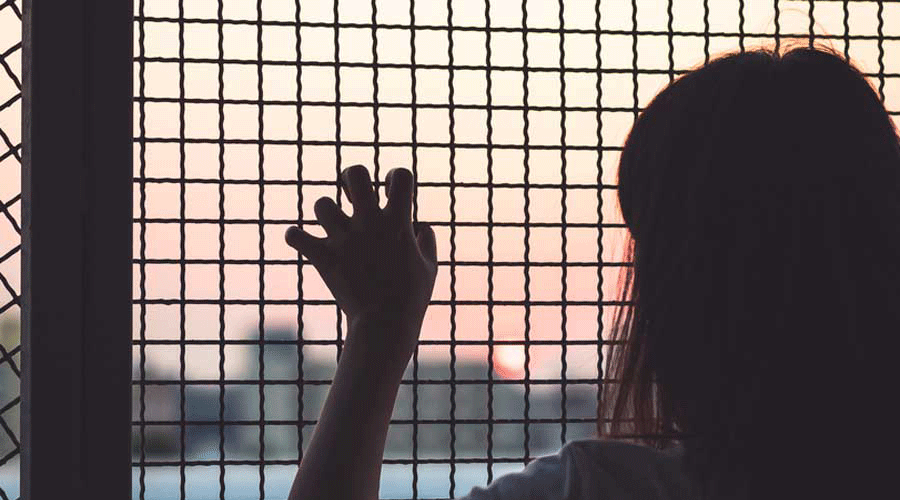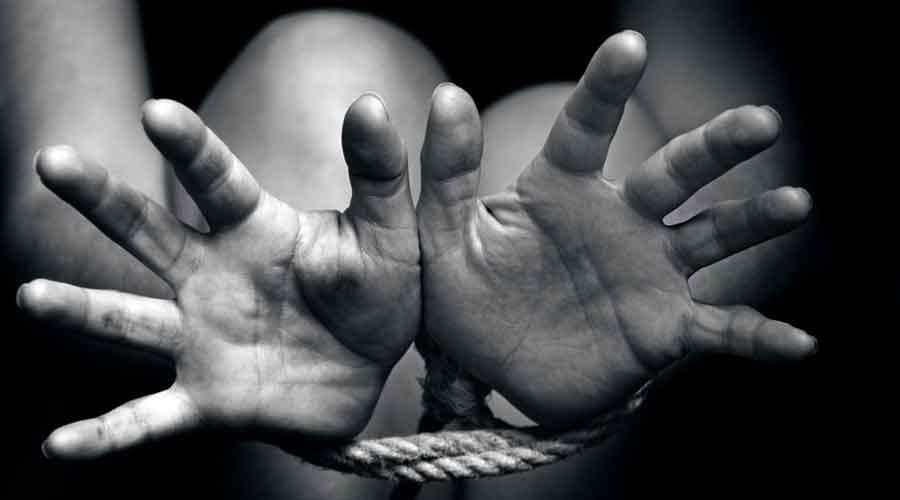The fight against stigma and the challenges in pursuing court cases were among the biggest challenges in combating the menace of trafficking, survivors and rights activists said during a programme in the city on Tuesday.
A bunch of trafficking survivors told a panel how they faced discrimination — from within their own community — after being rescued.
Threats from traffickers or their associates are a regular affair, the survivors said.
The panel comprised Sudeshna Roy, special consultant, West Bengal Commission for Protection of Child Rights; Madhumita Halder, consultant, prevention of trafficking, department of women and child development and social welfare; Kakali Ghosh Kundu, the inspector in charge of Baruipur women's police station and anti-human trafficking unit; Sarfaraz Ahmed Khan, professor at NUJS, Calcutta and Susovan Si, head of eastern region of Childline India Foundation.
The session, organised by an NGO called World Vision India, began with the sharing of the findings of a survey of 80 trafficking survivors, recently done by the NGO.
Snippets from the session
Stigma
Eight girls were rescued from the clutch of traffickers in Bihar in 2020. Some of them were at Tuesday’s programme.
A majority of them were minors and were lured with the prospect of a better life.
The father of one of the girls deserted the family when she was in Class X. Abject poverty prompted her to look for work. An “aunty” offered her a job with a music troupe in Bihar.
She was taken to a house in Bihar and forced to dance at sleazy bars in the evening and “entertain” private customers at night. After a couple of months, she was rescued along with seven others after a girl managed to make a call to police from the Bihar den.
The fight against discrimination started after returning home. No one would sit beside her in tuition classes. “When I asked why they said their parents had asked them to avoid me,” said one of the survivors.
Another survivor said she would not be allowed to fetch water from the tubewell by local women or enter the nearby temple. “They would say that I was stained and impure,” she said.
Cost factor
Joseph Wesley, who looks after the Bengal operations of World Vision, spoke about the “prohibitive cost” of continuing a legal battle for a survivor.
“The participation in the trial is often prohibitively expensive for the survivor. Cost is a real factor,” he said.
This newspaper has earlier reported how trafficking survivors struggle to arrange for expenses to travel to court for hearings.
Assistance usually comes from NGOs but even then, after being subjected to physical and mental abuse, the long and tedious road to justice often proves too much for survivors, many of them minors.
Halder said the existing laws had provision of financial help to trafficking survivors under the age of 18.
“The government gives funds to all the district child protection units. They (minor survivors) don’t have to bear it from their own pocket. If there is a need for funds to send a child for court production or transfer the child to his or her native place in another state, there is a fund lying with the district child protection unit which can be utilised,” she said.
“Under the amended Pocso act, all CWCs (Child Welfare Committees) are authorised to award interim relief (to minor survivors). If an NGO or a survivor’s family approaches the CWC, saying that the child is in need of interim relief, CWC has the power to provide that relief,” Halder added.
Other hurdles
The legal battle is doubly hard in the case of survivors rescued from other states.
“We need independent witnesses to sign the memo and seizure list. In Bengal, we can get representatives of NGOs. But getting an independent witness in another state is a big challenge,” said Ghosh Kundu, the inspector in charge of Baruipur women’s police station and anti-human trafficking unit.
In many cases, those trafficked are rescued from outside the state. Family members file a missing diary or an abduction complaint with the local police station in Bengal. But the case papers are with the police station under whose jurisdiction a woman/girl had been rescued.
In the absence of coordination between the authorities in Bengal and other states, the cases get dragged.
“The language barrier is also a big problem. The case papers are often written in the local language,” she said.

